Already a member? Log in to the Member Site at members.mastery.org.

Student Voices: Megan ‘20
September 30, 2019
Letter to Members and Friends — from the CEO
October 8, 2019Turning Theory into Practice
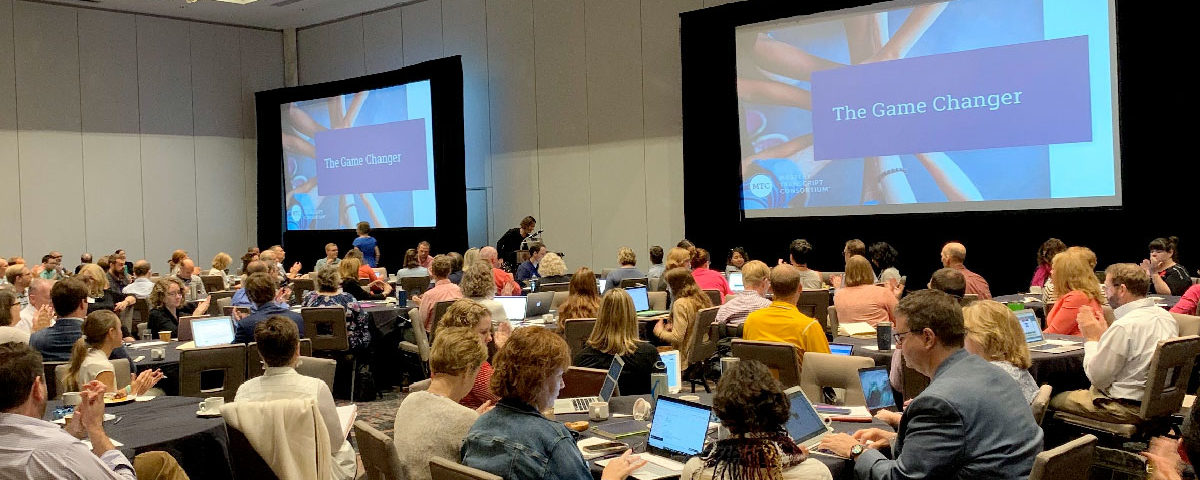
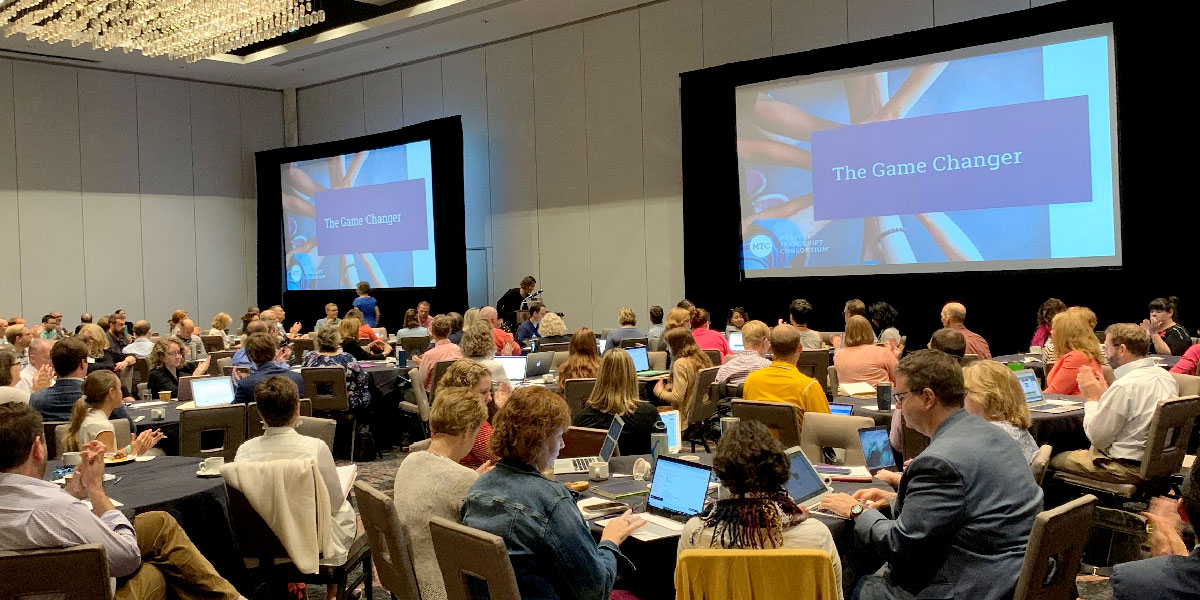
A LOT HAS CHANGED SINCE MTC held its first Site Director meeting in August 2017 at member school Phillips Academy in Andover, MA. Back then 60 enthusiastic site directors joined in what felt like the opening celebration for MTC’s official launch and left with the task of communicating the MTC concept back to their school communities. The estimated timeline for implementing the new MTC Mastery Transcript was about “seven to 10 years.” But, just two years after that meeting, several students at MTC member schools are preparing to use the first version of the MTC Mastery Transcript during college admissions, while other members are conducting testing and laying important groundwork for change.
“I was intent on joining the Mastery Transcript Consortium from its inception because I believe the Mastery Transcript is the best way to fully represent the rich breadth and depth of a person’s abilities,” said Julia Burns, co-founder and board president of Pathways High, a public, member high school in Milwaukee that is learner-centered and will have several students using the MTC Mastery Transcript as they apply to college this year. “The traditional transcript’s reductive quality leads to the squandering of talent we cannot afford. We are proud to be one of the first high schools in the country to pilot the Mastery Transcript and help lead the tipping point in the transformation of education.”
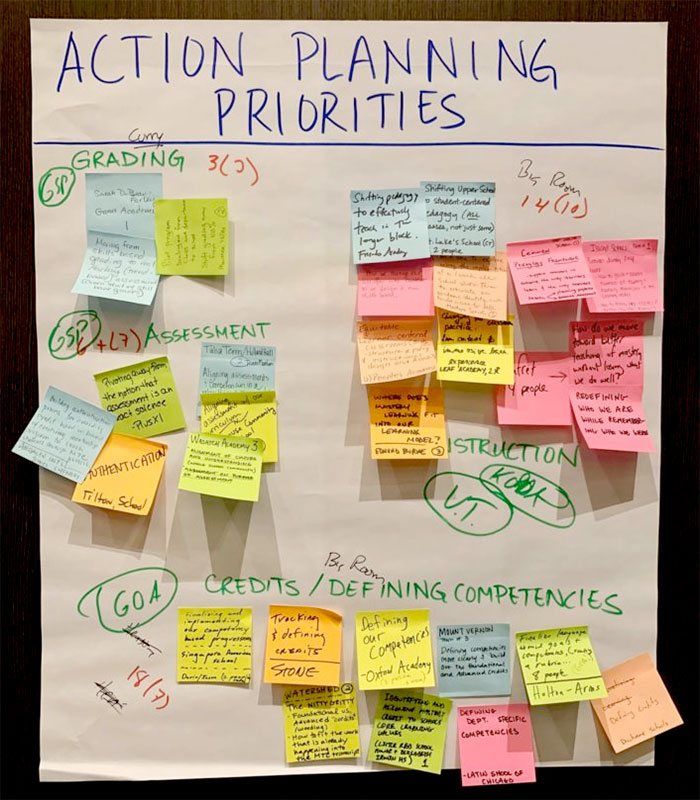
MTC credits the progress made to its growing and engaged member base and to the underlying need for change, as laid out in MTC’s Theory of Action paper, “Getting Our Signals Straight for Students” (PDF download). The paper is the first in a series of publications MTC is releasing along with Chris Sturgis, cofounder of CompetencyWorks and LearningEdge, and her colleague Katherine Casey. They have also coauthored a number of reports for iNACOL.
“Adopting the Mastery Transcript does more than remove a barrier to innovation; it unleashes innovation in high schools,” said Sturgis, who is also a member of MTC’s Advisory Council. “It brings innovators together and accelerates them on the pathway to mastery learning and mastery school design, whether they are just beginning that journey…or are well along their way.”
Last week, about 160 MTC Site Directors gathered at the University of Maryland for one of MTC’s two, larger-format ”symposia” being offered to member schools in 2019-2020. Together they started setting this theory of action into practice.
“When the work at MTC began, the question was, ‘What IS this?’” said Eric Hudson, director of learning and design at Global Online Academy (GOA), who served as facilitator for MTC’s early site director meetings and later as a coach at the most recent one in Maryland. “Now, it’s ‘What do you think of my credit architecture?’ and ‘How do I empower teachers to lead this?’ and ‘What does a community-wide effort to create a Portrait of a Graduate look like? Change is happening!”
Entry Point for All
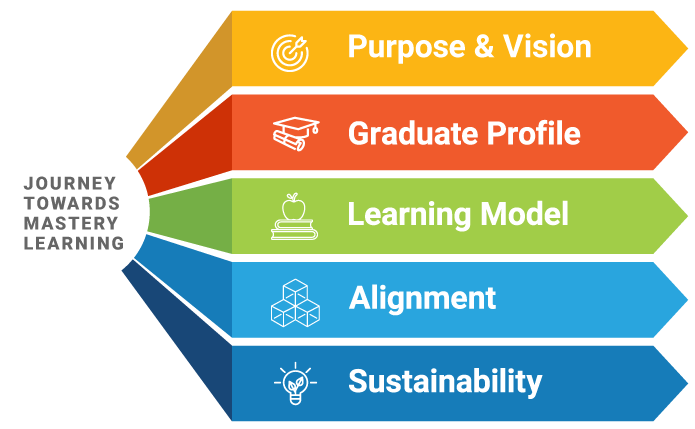
During the recent symposium, there was the same excitement and energy in the air as the first meeting, mixed now with a serious focus on how to make a new transcript work in each school community–among current members and any future member school. Teachers, college counselors, heads of school, principals, superintendents, and partners workshopped a range of approaches to mastery learning and to the varied journeys toward using the Mastery Transcript. Participants were organized in small groups, according to where each school is in its change process, and joined by coaches from Champlain Valley High School, Global Online Academy, Great Schools Partnership, KnowledgeWorks, the Korda Institute, and reDesign LLC.
“Aligning processes to systems cannot produce the same results as aligning processes to learners,” said Chuck Ambrose, president and CEO of KnowledgeWorks, who co-led a session with his colleague Virgel Hammonds, Chief Learning Officer. “The Mastery Transcript can help learners own their pathways and track their progress throughout their journey.”
At last count, MTC has 284 members in its growing network of public and independent high schools who together serve about 150,000 students. The first group of pilot schools are primarily made up of public schools from diverse locations around the country. Some are using it for all of their students, while others are deploying it with a group of students who opted into the pilot. The rest of MTC’s membership is involved in different levels of testing, with many offering feedback toward the next iteration of the transcript and others using it with students during one-term or school-within-a-school programs.
“What I tell new members is that pacing is important,” said Ben Rein, senior director of outreach and partnerships. “MTC is committed to meeting our member schools where they are, which is the same approach that our member school teachers and leaders take with each of their own students.”
Approaching College Admissions
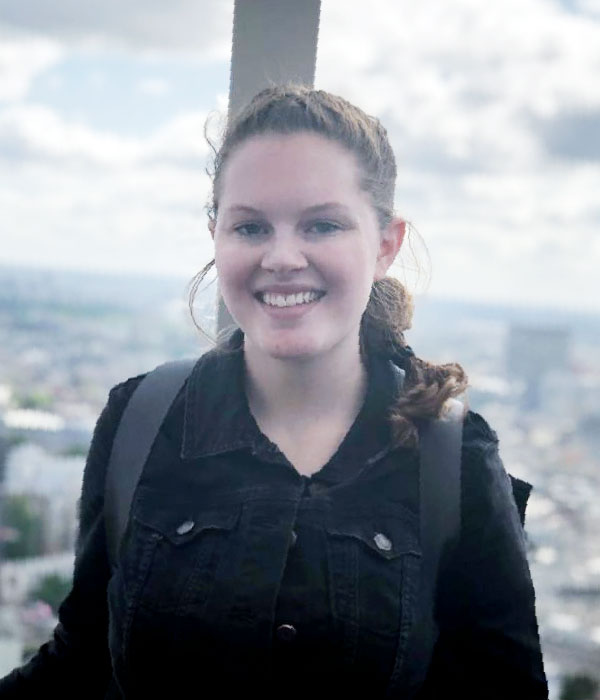
Megan '19, Gibson Ek High School
During the coming weeks, more than 60 students from a handful of schools across the country will be working with their teachers and counselors to start preparing their Mastery Transcripts for college applications.
“I actually can’t even express how excited I am to showcase my work in a way that makes sense and actually shows off all the work that I’ve done,” said Megan ‘19, a senior at Gibson Ek High School in Washington state. “I feel confident using the Mastery Transcript as I apply to college, as it’s going to be wonderful to have something to show that is more than a simple set of numbers or GPA. This is really going to help explain who I really am and what I have accomplished.”
Members of the higher education community are also diving into the new transcript, and MTC is exploring opportunities to expand this work even more (if you are a member of the higher ed community and want to get involved, please get in touch). Last spring MTC launched its Higher Ed Advisory Group, comprised of a strong group of undergraduate admissions leaders from a range of colleges and universities. This fall MTC is conducting outreach and offering support to “destination” colleges who are likely to receive a Mastery Transcript this year. MTC is also engaging other representatives from colleges, universities, and related institutions in user testing and in the broader conversation about how to bring sustainable policy and practice changes in higher education admissions, while helping admissions teams identify students from a wide range of backgrounds who have the skills and habits to thrive in college. Read the MTC overview to higher ed(PDF format) for more.
During the opening to the recent symposium, Katherine Russell, PhD, associate dean of the College of Behavioral and Social Sciences at the University of Maryland, described how higher education itself is on the brink of seismic shifts and how she believes MTC can support their movement for change, too.
“I see what the MTC is doing as nothing less than attempting to redirect the energy of students in high school, and hopefully later in college, away from a focus on rigid comparative criteria of grades and toward a more individualized personal development of strengths and goals,” she said. “Despite the employment opportunities being quite strong and our students across the University placing extremely well after college, many are still crippled by what can only be described as irrational fear of grade performance. By the time they reach college, it is a habit that can be consuming.”
Looking to the spring, MTC plans to integrate the range of valuable feedback on the first version of the Mastery Transcript into the next version of the transcript and also plans to continue helping more member schools establish a Mastery Credit architecture. The goal is to deploy the Mastery Transcript across more member schools during 2020-2021 admissions season.
“This is a significant year for MTC,” said Stacy Caldwell, CEO of MTC. “We are a learning organization at our core, so we are being very intentional about curating feedback and continuing to iterate upon the first version of our Mastery Transcript. At the same time, the work our member schools are doing presents a breakthrough for education, with great potential for scaling in the years ahead. If done well, our work will demonstrate how moving away from the business of sorting and ranking for college admissions can open up a more meaningful, more successful, and overall more sustainable path for all students.”
Related Reading: Jobs to Be Done
Drawing upon a “Jobs to Be Done” framework from NAIS, MTC’s Chief Product Officer, Mike Flanagan, developed a similar framework for why schools seek out the Mastery Transcript as they join the MTC:
- Job 1, Curriculum: Our school/program is deeply focused on building a mastery-based educational program that emphasizes 21st-century skills, social emotional learning, and/or project-based learning, so we want a transcript that aligns to those principles and reflects them fully.
- Job 2, Wellness: Our school community has students (and families) who are interested in highly selective colleges, so we want an application process that is more humane than the current one and the MTC is the best opportunity to drive that change.
- Job 3, Equity: Our school is committed to serving low income students. We want a transcript that reflects these students’ skills and achievements rather than their household incomes and/or parents education
- Job 4, Innovation: Our school is/wants to be recognized as an innovative thought leader in education. We want to surround ourselves, learn from, and be publicly recognized as part of a like-minded network for schools.




